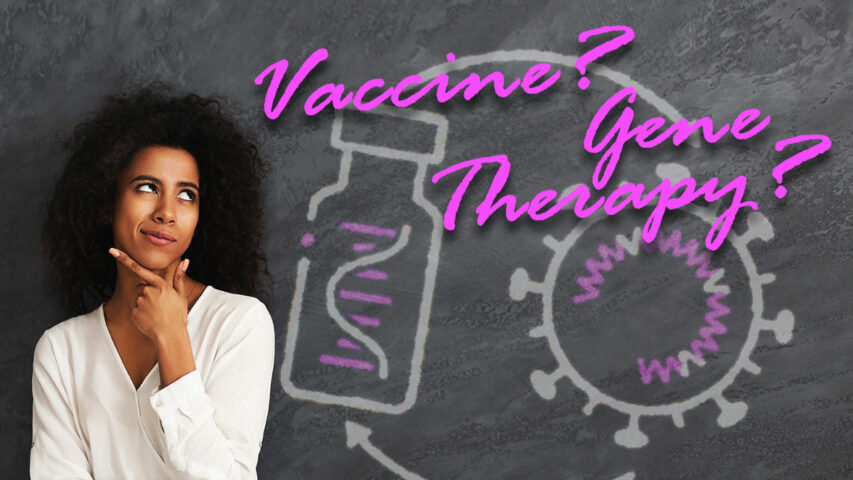- Have any questions? Contact us!
- info@dr-rath-foundation.org

The EU’s Digital Services Act Is The Next Big Threat To Free Speech
July 5, 2023
Probiotics: Health Essentials
July 13, 2023International Science Journal Publishes Article Calling For COVID-19 mRNA Vaccines to be Reclassified as Gene Therapies

In a significant development, a review article published in the International Journal of Molecular Sciences is openly calling for anti-COVID-19 mRNA vaccines to be reclassified as gene therapy products. Noting their rapid development and approval in response to the SARS-CoV-2 coronavirus, the article argues that, now the pandemic has passed, it is time to properly consider the safety issues associated with their use. Despite their principle of action corresponding to regulatory definitions of gene therapies, the article explains, the injections are instead being treated as vaccines against infectious diseases. Government authorities have provided no scientific or ethical justification for this.
Pointing out that they represent a novel class of vaccine based on new technologies, the article proposes that anti-COVID-19 vaccines should be subject to more controls than conventional injections. Noting that manufacturers are planning to replace certain “classic” vaccines with mRNA versions, starting with influenza vaccines, and that mRNA cancer “vaccines” are also being announced, the article stresses that safety issues arising from the absence of sufficient regulatory controls should urgently now be addressed.
Vaccine manufacturers had expected their mRNA products to be regulated as gene therapies
The article strongly asserts that mRNA injections are not vaccines and that they should comply with gene therapy product regulations. Interestingly, therefore, it also describes how both Moderna and BioNTech had originally expected to have their mRNA products regulated as gene therapies.
Moderna acknowledged in a 2020 United States Securities and Exchange Commission filing that “currently, mRNA is considered a gene therapy product by the FDA.” Similarly, BioNTech founder, Ugur Sahin, in a 2014 article, stated that: “One would expect the classification of an mRNA drug to be a biologic, gene therapy, or somatic cell therapy.” In view of this neither company should have any cause for complaint should their mRNA products be reclassified.
Evidence suggests mRNA injections can cause or reactivate cancers
Discussing the types of studies that should have been carried out prior to the authorization of anti-COVID-19 mRNA injections, the article describes how Europe’s Committee for Medicinal Products for Human Use has noted that no data are available on vaccine placental transfer or excretion in breast milk. However, research carried out independently of the products’ manufacturers has demonstrated the passage of vaccine mRNA into breast milk in the first week following injection. According to a United States Food and Drug Administration (FDA) report, adverse effects observed in breast-fed babies could be due to this. Moreover, nanoparticles, similar to those found in COVID-19 mRNA vaccines, have been shown to be capable of crossing the placental barrier in mice. The article therefore argues that extensive preclinical and clinical studies should have explored these aspects.
Carcinogenicity, tumorigenicity, and immune suppression studies should also have been carried out, the article asserts, as studies have suggested mRNA vaccines may induce immunotolerance. Recommending that cancers developed by vaccinated individuals should be monitored over the long term, the article describes how cancers have been shown to develop following mRNA vaccinations or even be reactivated by them.
No long-term human safety data exists for mRNA injections
The article notes that gene therapy product regulations require very long-term monitoring of adverse effects. This will be difficult to achieve for mRNA vaccines, the article explains, as the European Medicines Agency (EMA) has only requested a 24-month follow-up of adverse events after vaccination, saying that a significant number of participants in the placebo group have now been vaccinated.
Moderna announced that “as of 13 April 2021 all placebo participants have been offered the Moderna COVID-19 vaccine and 98% of those have received the vaccine.” As the British Medical Journal summarized the situation, “the trial is unblinded and the placebo group no longer exists.” This clearly makes proper safety follow-up very difficult.
Describing how the EMA’s latest date for pharmacovigilance follow-up for anti-COVID-19 mRNA vaccines is 31 March 2024, the article further explains how this is well below the 30-year follow-up period that the agency requires for gene therapy products. In the United States, the FDA has a 5- to 15-year follow-up for such products.
In its conclusion, the article notes that the role of regulatory agencies is to ensure the safety and efficacy of medicines. Given however that the COVID-19 pandemic dramatically accelerated the timetable for the production and clinical use of mRNA vaccines, it will clearly not have been possible for all aspects of their safety to have been fully addressed. With billions of doses administered, the long-term effects of this are incalculable.
But with an effective, safe approach to improving immunity against COVID-19 now available in the form of a game-changing combination of natural micronutrients, the risks of submitting to experimental mRNA injections can no longer be justified. The only parties to suffer from this revolutionary scientific development, as well as from the reclassification of mRNA injections as gene therapies, will be the multibillion-dollar vaccine industry and its stakeholders.
Speaking at a World Health Summit conference in Berlin, Bayer executive Stefan Oelrich admitted that, in reality, anti-COVID-19 mRNA vaccines are gene therapies.




